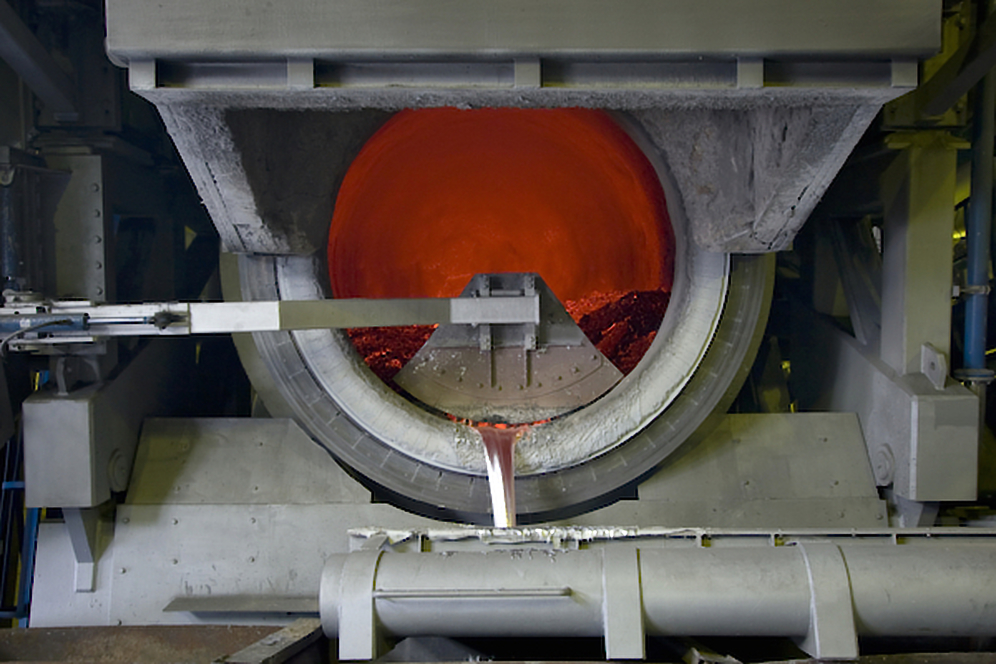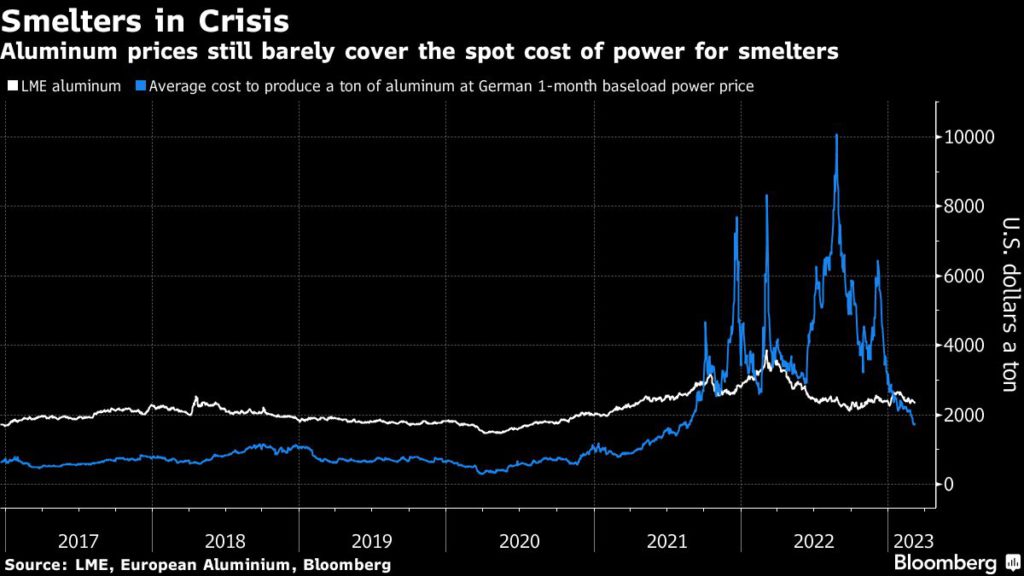Europe loses another smelter as energy crisis leaves deep scars

Another European aluminum smelter is closing, in a fresh sign of the damage wrought by an energy crisis that’s hammered the region’s industrial economy and crimped supplies of critical raw materials.
While power prices have retreated sharply from last year’s peaks, Speira Gmbh will shut its Rheinwork plant in Germany this year due to challenges in the energy market, the company said Thursday. That follows a 50% cut in aluminum production announced in September as soaring power and gas prices plunged Europe’s energy-intensive metals industry into an existential crisis.
Some smelters have been ramping back up in recent weeks, but the Speira shutdown is the latest sign of the obstacles politicians face as they seek to prevent a further wave of deindustrialization. They are also looking to shore up local supplies of critical industrial raw materials as global supply chains become more fragile.
The European Commission will aim to produce at least 40% of its annual consumption of strategic raw materials by 2030, Bloomberg reported on Wednesday, citing draft legislation that’s due to be presented to politicians later this month.
The document didn’t detail the commodities it will target, but in 2020 the EU identified 30 strategically important raw materials, many of which play a critical role in renewable energy, electric vehicles, aerospace and defense. Bauxite — the mined ore that aluminum is derived from — was included in the list, although the metal itself wasn’t.
For decades, the global aluminum market has been plagued by oversupply, but events of the past few years — including the US-China trade war, the invasion of Ukraine and Europe’s energy crisis — have underscored the fragility of global supply chains. That’s highlighted the dangers of the West’s growing reliance on imported supplies from major producers such as China and Russia.
Aluminum is one of the most energy intensive metals to produce, and European production capacity has fallen by more than half since the start of the energy crisis. Many plants have dialed back production, but others including Norsk Hydro ASA’s Slovalco plant in Slovakia and Alcoa Corp.’s San Ciprian plant in Spain have stopped producing entirely.

Like those plants, the Speira smelter will be placed on long-term care and maintenance, and could reopen eventually if the economics improve, a spokesman for the company said by phone. Yet restarting a smelter is slow and costly, and some plants in the region that closed in prior downturns have never reopened.
In January, the European metals industry’s main lobbying group warned that further long-term financial support is needed to help the region keep control of raw materials that are critical to the green-energy transition. In addition to the ongoing threat posed by high energy prices, Europe is at risk of losing out to the US in attracting investment, due to the billions of dollars in subsidies available through President Joe Biden’s controversial Inflation Reduction Act, the group said.
Speira will now focus solely on recycling and processing aluminum into value-added products, it said. While the decision to close the smelter will affect about 300 employees, the company will deliver all contracted sales to its customers, replacing the curtailed production with external metal supplies.
(By Mark Burton)
Read More: China copper exports to jump in rare deliveries to LME depots
{{ commodity.name }}
{{ post.title }}
{{ post.date }}




Comments